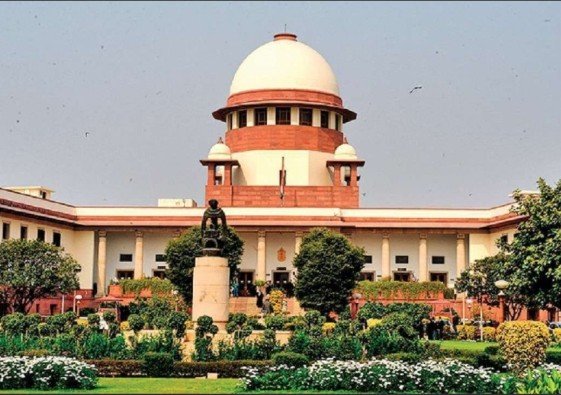Supreme Court Flags Judicial Delays, Calls for Performance Evaluation of High Court Judges
“Files Must Not Pile Up”: SC Laments Some HC Judges Failing to Deliver Timely Justice
- Timely Justice a Public Expectation, Not a Luxury, Says SC on HC Verdict Delays
New Delhi, Sept 22: The Supreme Court on Monday expressed deep concern over delays in judicial functioning, remarking that while many High Court judges are working tirelessly, a few are “unable to deliver on their tasks,” thereby creating a backlog of pending cases. The top court underscored the urgent need for a system of performance evaluation to ensure judicial efficiency and accountability.
A bench comprising Justice Surya Kant and Justice N. Kotiswar Singh noted that its intention was not to behave like a “school principal” for the High Courts but pointed out that judges must adopt self-discipline and better case management practices to avoid piling up of files on their desks. “There are judges who work day and night and give outstanding disposal of cases. But there are also some who, for reasons we do not know—good or bad—are unable to deliver,” the bench observed.
The court gave examples to highlight inconsistencies in judicial performance. While it acknowledged that deciding even one criminal appeal in a day can be a significant achievement, it found it unacceptable for judges to hear just a single bail matter in a day. “That is something that requires introspection,” the bench remarked, hinting at a need for balance between the complexity of cases and judicial output.
The Supreme Court also stressed that any system of performance evaluation should be guided by clear parameters and broad guidelines so that judges know what is expected of them. “There is a legitimate expectation from the public at large that the judiciary must deliver timely justice,” the bench stated.
The observations came during the hearing of criminal appeals where convicts, including those facing life and death sentences, had approached the court alleging that the Jharkhand High Court had reserved verdicts in their cases for years without delivering judgments. The High Court eventually pronounced verdicts and acquitted several convicts, but the prolonged delay drew strong censure from the apex court.
Advocate Fauzia Shakil, appearing in the matter, submitted a chart highlighting delays in judgment delivery across High Courts. She pointed out that some courts had failed to submit case data in the prescribed format. The bench directed her to file detailed data within two weeks, including dates of verdict reservations, pronouncements, and uploads. Senior advocate Ajit Sinha was also requested to assist in examining the issue.
Justice Surya Kant further noted that frequent and unnecessary adjournments by certain judges harm the image of the judiciary. “Every judge should have a self-management system. Some of them, in their anxiety to hear more and more cases, end up adjourning matters unnecessarily, which creates serious delays,” he said.
The bench also reminded the High Courts of the apex court’s earlier ruling that when only the operative portion of a judgment is pronounced, the detailed reasoning must follow within five days. “Unless this timeline is modified by the Supreme Court itself, the High Courts are bound to follow it,” the judges emphasized.
The strong remarks from the Supreme Court have reignited discussions around judicial accountability, pendency of cases, and the pressing need for reforms in case management. The matter is expected to shape further debate on whether India’s higher judiciary needs formal systems of performance evaluation to restore public faith in timely justice.




